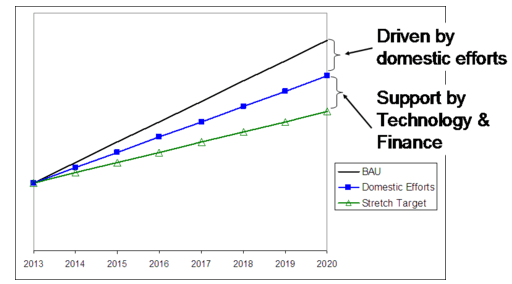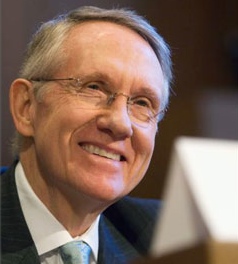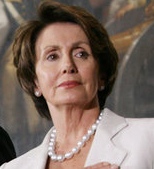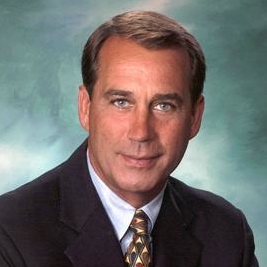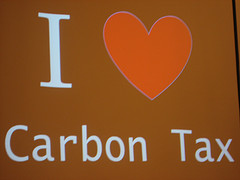Climate Politics
All Stories
-
Providing the tools to get a strong international climate agreement
People always ask me: how do we get a strong international commitment to solve global warming pollution? What “tools” do U.S. negotiators (and others) have to secure an equitable commitment from all major emitters to reduce global warming pollution? How do we support the most vulnerable developing countries in adapting to the impacts of global […]
-
Reid backs away from funding health care via cap-and-trade
Remember how Senate Majority Leader Harry Reid (D-Nev.) last week opened the door to the possibility of using cap-and-trade revenues to fund a new health-care system? He’s now sounding less enthused about the idea, saying he has “no big plot” to pay for health care with cap-and-trade. Meanwhile, it’s become clear that Congress will have […]
-
‘We set our own pace’
“We are building our consensus, and when we are ready, we will bring it to the floor. I have never been driven by a Senate timetable or what they are willing to pass. We set our own pace and our own standard here, but respectful of what we can get done, working together with the […]
-
Q: Does a climate bill have to be bipartisan?
I’m updating my previous answer to this important and complicated question, but sticking with “no” for four reasons: 1. Against all evidence, conservative Republicans have simply refused to budge on the global warming issue (see “House GOP pledge to fight all action on climate. “Why do conservatives hate your children?”). They would rather destroy the […]
-
Cato’s skeptic ads draw a flurry of responses
The ad questioning scientific consensus on climate change. Cato Institute The libertarian Cato Institute spent serious free-market cash on its full-page ad questioning climate change on Monday, placing it in the New York Times, the Washington Post, the Washington Times, the Los Angeles Times, and the Chicago Tribune. The NYT ad alone cost more than […]
-
House Republican leader continues to distort costs of cap-and-trade
As David noted yesterday, the figures Republicans are using to malign the cap-and-trade plan that Democrats put out this week are utterly, certifiably false. But that didn’t stop Minority Leader John Boehner (R-Ohio) from repeating them in yet another press release on Thursday. “Families and small businesses are struggling to get by, but the Democrats’ […]
-
Myth: Democrats support good climate policy and Republicans oppose it
Energy and climate scramble the usual left-right political divisions. Many of the big fights are not among parties but among regions and levels of government. In the U.S. Congress, to be sure, the Republicans=obstructionists formula holds with virtually no exceptions save a tiny handful of remaining Senate “moderates.” Republican obstructionists are joined in the House […]
-
Myth: Unlike cap-and-trade, a carbon tax is simple, immune to manipulation, & politically palatable
A strange-bedfellows political coalition, everyone from the CEO of Exxon to climate scientist James Hansen, supports a carbon tax as an alternative to cap-and-trade. Tax proponents allege that cap-and-trade is too complicated; too friendly to financial industry tricks and manipulations; too open to loopholes, cheating, and special pleading; too weak to work. This is all […]
-
Myth: Consensus on policy is possible even among those who disagree about climate change
John McCain popularized this notion during his ill-fated presidential campaign, assuring skeptical conservative audiences that whether or not they believed in climate change, they should support clean energy policy. The appeal is clear enough: climate change is politically divisive. It’s “environmental” (ew!). It’s associated with Dirty F***ing Hippies (double ew!). If everyone can agree on […]
-
Myth: Europe’s experience shows that cap-and-trade can’t work
It is now widely acknowledged that Europe’s carbon trading program — the ETS — made several key mistakes in its initial trial period. The system covered a narrow slice of the EU economy, yielding a relatively small market wherein price fluctuations could not be effectively smoothed out. The data on baseline emissions was poor and […]
